Why China Will Soon Be No. 1: Brad Pitt, Pandas And No Elections
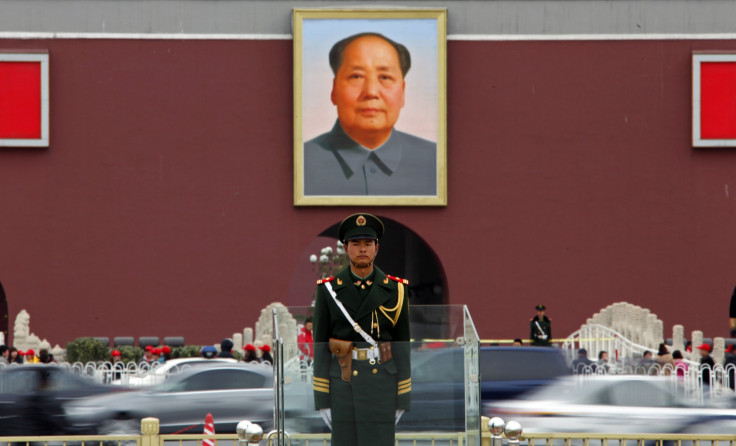
Various reports are claiming that it is only a matter of time before China surpasses the U.S. as the world's top superpower. A report by the China Daily claimed that China will "surpass the United States in an all-around way by 2049," citing a report that the Chinese Academy of Sciences released.
A less-serious take by Comedy Central cited a study by the National Intelligence Council, which claimed that China's world dominance can be expected even sooner -- in 2030. But the 166-page study did not convince writer Mary Phillips-Sandy, who refuted the claims with a very persuasive 11-point list of reasons America will always be No. 1 (Beyonce being among them).
As convincing as that list was, I think it's only fair to give China a fair shot at that top spot. Here are a few reasons:
They Have Brad Pitt
The U.S. may have some ridiculous personalities on Twitter, but China's version of the micro-blogging platform, Weibo, is no joke.
The social media company launched in 2009 has a registered user base of 358 million as of 2012. That's more than the entire population of the United States. U.S.-based Twitter has about 500 million users worldwide but has been around since 2006. On any given day, Weibo has 36.5 million active users. But aside from the staggering numbers, Weibo is very different from Twitter, and many are saying it's better.
Sure, people on Weibo have to deal with government censorship and self-censorship on particular taboo topics, but users are getting creative by using different tactics to get around censors, like giving topics unrelated code words.
Additionally, Weibo has become arguably the most useful tool for anyone in business, marketing and politics attempting to reach China's untapped masses. Weibo has proven to be a game-changer in China, challenging old-school censorship with a new crop of censorship-savvy netizens.
Plus, Brad Pitt just joined the dark side and is now on Weibo. Is he on Twitter? Nope.
12 Spirit Animals
The Comedy Central article references the majestic American bald eagle, the soaring symbol of the nation's freedom and the official bird of the United States, prominently represented on the seal of the president.
China's answer to that? Take your pick: the rat, ox, tiger, rabbit, dragon, snake, horse, ram, monkey, rooster, dog and pig. A pack of 12 animals, some of which may only exist in fairy tales (ever seen a dragon?) but are as symbolic as the bald eagle.
Collectively, they are also known as the Chinese zodiac. Each animal, like the Western zodiac signs, has distinct traits but is designated by year of birth rather than the month. The nation's unwavering cultural allegiance to the lunar calendar and the cycle of the 12 zodiac animals also says the Chinese aren't going to accept the Western world's vague horoscopes.
China's official bird is the red-crowned crane, but it was only selected in 2007 after many years of debate, so we're sticking to the 12 zodiac animals.
And just in case 12 animals were not enough, here's one more: the panda.
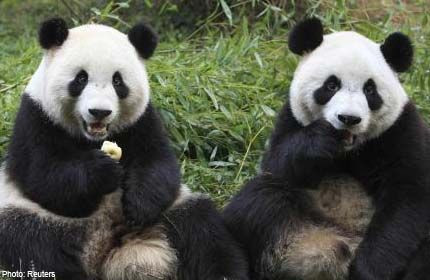
Potty-Training Kids' Pants
America is the home of several luxury garments, like the Snuggie, the Forever Lazy and Pajama Jeans, but it is possible that China's split-pant toddler sweats have beat out all clothing trends in the U.S. Not only are the pants a convenient way for children to relieve themselves and a cheap and accepted form of clothing among the Chinese, but, according to CRI News, babies who use these pants are potty trained by a younger age than those who use diapers.
While parents across America are spending their hard-earned dough on diapers for their toddlers, Chinese parents save money by dressing their kids in those special pants. Leave it to the Chinese to come up with an easy and economical way to go to the bathroom.
Business Made Easy, Thanks To Alcohol
America's convenient drive-thru liquor stores is one phenomenon that has not hit China. In fact, drive-thrus for fast food places, ATM machines or coffee joints are rare if completely nonexistent. But this isn't to say alcohol is not accessible in China. Just ask the 15-year-old students at the bars in Beijing's San Li Tun district.
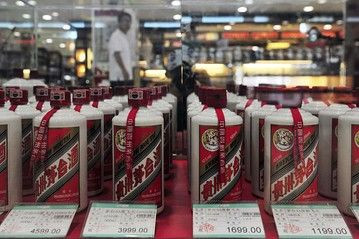
Aside from very relaxed drinking-age regulations, China produces some of the world's strongest alcohol at very affordable prices. Anyone can pick up a 100ml (3.4 oz) bottle of Chinese baijiu, a hard liquor ranging from 70 to 120 proof, at local 7-11 stores for as low as 5 yuan, which is less than one dollar.
In China, drinking is openly part of the business culture. Cheers to this meeting! Cheers to our successful businesses! Cheers to this great pen I used to sign the papers! And in case you were not sure of going through with that deal, six shots of baijiu later, you've probably made your decision, so cheers to that!
What Are Opposing Candidates?
Perhaps the thing China gets criticized for the most is its lack of a democratic process. Yes, China is not "free," but to that many Chinese say, "What country is actually free?"
China's process of electing a new leader is nothing like the United States. The ruling Communist Party appoints the president, vice president and Politburo members without ever having to know the concept of primary elections, electoral colleges or swing states.
Another difference between the U.S. and China during leadership changes? Media coverage.
In the U.S., tireless, 24-hour election coverage begins long before anyone gets in the voting booth, leaving many Americans weary of all news. The average person can only handle so many polls, pie charts, analyses and debates.
In China, "elections" go down very differently and, for the most part, behind closed doors. People endure a couple of months of propaganda-heavy slogans and hammer-and-sickle banners, and, before they know it, Xi Jinping will be the nation's future leader. That was easy.
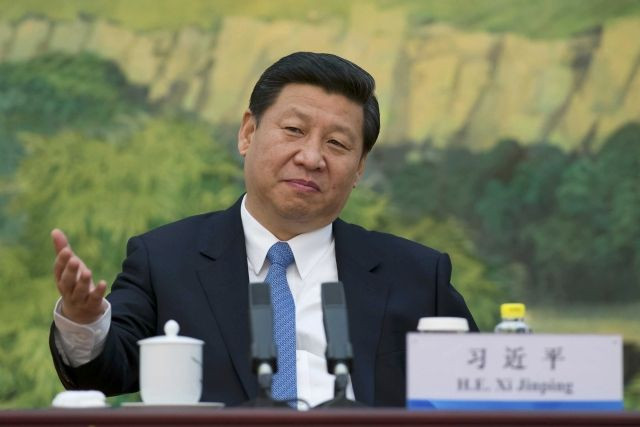
New Year's Week Celebrations
Sure, China is still figuring out how to deal with stabilizing the economy, the growing divide between the rich and the poor, environmental woes, political corruption, social reform, censorship and a series of other issues. But if there's one thing China knows for sure, it's how to ring in the new year -- no, not the one that happens on the first of January, but the Lunar New Year.
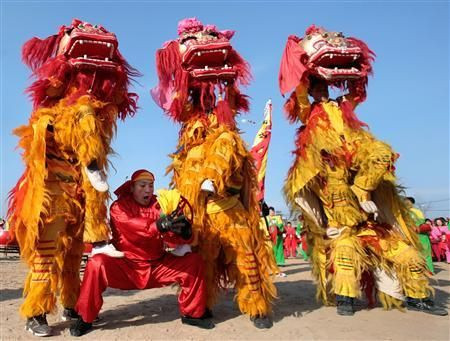
That's right, the Chinese New Year is arguably China's most culturally rich event, with specific traditional practices that occur on each day of the two-week celebration. And though they officially only get seven consecutive days off, that does not stop people from celebrating before, during and after the holiday season.
The Chinese exchange red envelopes full of money, set fireworks, eat traditional lucky foods and decorate homes in celebration. China's influence is so far-reaching that other countries with large Chinese populations, like Singapore, the Philippines, Malaysia and even the island nation of Mauritius in the Indian Ocean, 5,600 miles from Beijing, celebrate Chinese New Year.
If 15 days of fireworks bother you, however, you may want to leave the country.
© Copyright IBTimes 2024. All rights reserved.






















